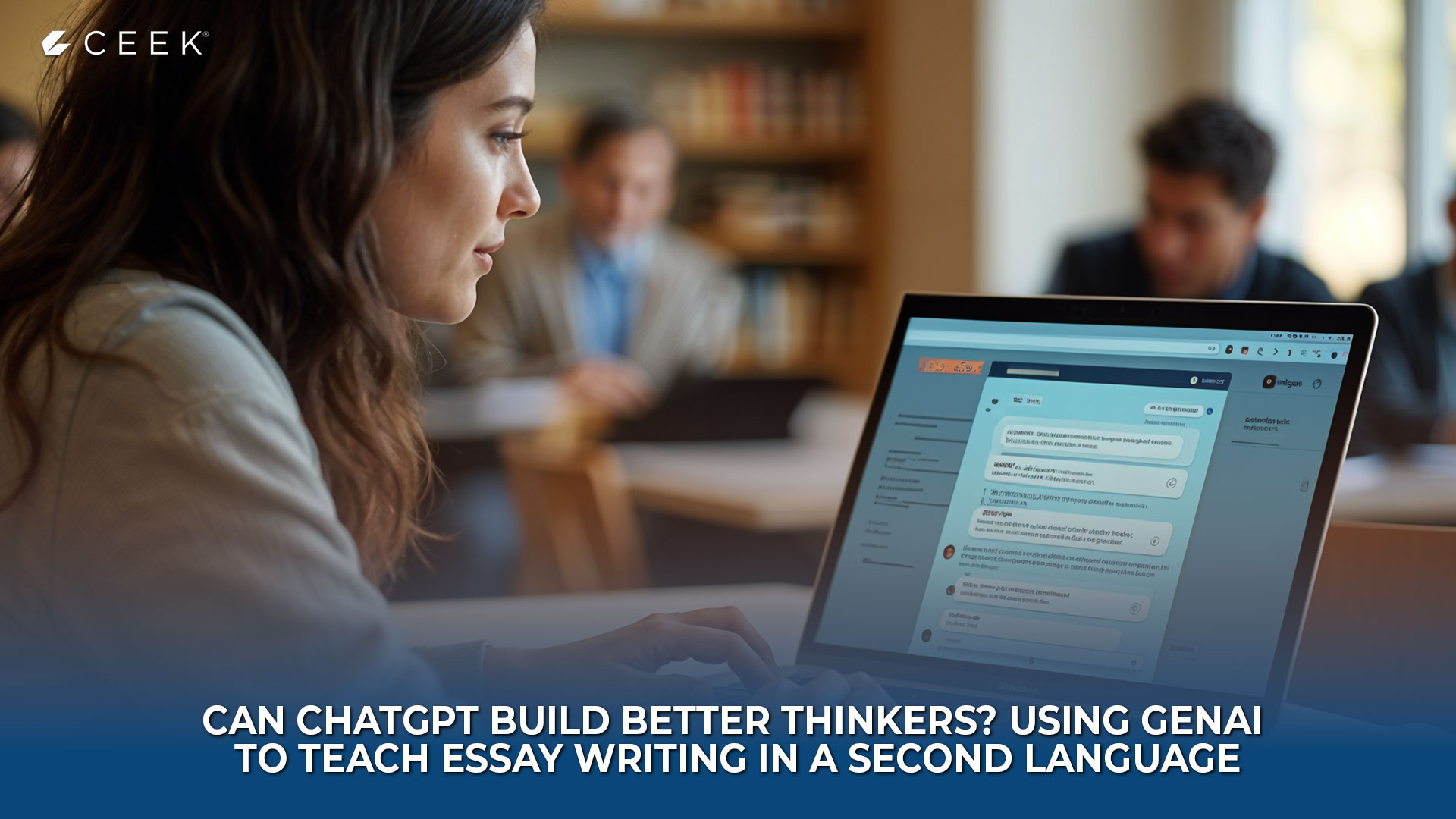

Can ChatGPT Build Better Thinkers? Using GenAI to Teach Essay Writing in a Second Language
In classrooms across the globe, students are tackling one of the most complex academic challenges: writing strong, coherent essays in a language that isn't their first. For non-native English speakers, mastering essay writing means developing grammar, structure, critical thinking, and persuasive expression—all at once.
Enter Generative AI, and more specifically, ChatGPT. While the world debates whether AI is replacing human thought, educators and language learners are discovering something far more powerful: AI can help build better thinkers—especially when it comes to writing in a second language.
Writing as a Cognitive and Linguistic Challenge
For ESL (English as a Second Language) students, essay writing isn’t just about putting words on a page. It involves:
- Understanding cultural and academic conventions
- Expanding vocabulary and mastering grammar rules
- Structuring arguments and synthesizing sources
- Thinking critically and communicating clearly
These are all complex, intertwined skills—and ChatGPT offers a real-time, responsive support system that can scaffold learning rather than shortcut it.
How ChatGPT Supports Second-Language Writers
- Real-Time Language Feedback
ChatGPT offers instant suggestions on grammar, word choice, and tone, helping students self-correct and understand nuances in usage. - Modeling Structure and Style
Students can ask, “Can you show me a five-paragraph essay on climate change?” and receive a model they can analyze, emulate, or rewrite. - Boosting Confidence
The non-judgmental nature of AI reduces anxiety. Students can experiment with ideas, ask for definitions, or request simpler explanations without fear. - Encouraging Iteration
AI makes revision feel more like a creative process. Students can ask for rephrasing, alternative arguments, or stronger introductions—all within seconds.
From Prompt to Purpose: Teaching Critical Thinking with AI
The true value of using ChatGPT isn’t just in grammar correction—it’s in guiding students to think more deeply. Educators can design activities like:
- Compare-and-Revise: Students generate an essay with AI, then analyze and revise it based on clarity, argument strength, and bias.
- Prompt Engineering: Learners craft more precise prompts to get better AI output, teaching them to clarify intent—a core skill in writing and thinking.
- Counterargument Debates: Use ChatGPT to present the opposing side, then have students critique and respond to it.
In this way, ChatGPT becomes a thinking partner—not a cheat sheet.
Ethical Use and Academic Integrity
Of course, AI in education must be used responsibly. Teachers should emphasize that:
AI is a learning aid, not a substitute for original thinking
Writing is a process, and AI can help at specific stages (planning, revising, editing)
Transparency matters—students should cite AI assistance when used
With the right framing, GenAI becomes a tool for development, not dependency.
The Bigger Picture: Access and Equity
For many second-language learners—especially those without access to private tutoring or advanced resources—ChatGPT levels the playing field. It’s free (or affordable), accessible 24/7, and highly adaptable to different learning styles and paces.
When integrated with immersive platforms like CEEK, students could even explore:
- VR writing labs with AI tutors
- Tokenized peer review communities
- Gamified writing challenges with feedback loops built in
This is the future of multilingual, equitable education—where students from any background can practice, fail safely, get feedback, and grow.
Final Thought: Can ChatGPT Build Better Thinkers?
Yes—when used as a mentor, not a crutch.
By supporting the writing process, modeling strong communication, and encouraging revision, generative AI tools like ChatGPT are accelerating language learning and critical thinking in ways previously unimaginable.
For ESL learners, essay writing is no longer a solitary struggle—it’s a supported, dynamic journey of self-expression.
Smart prompts. Stronger writers. Sharper minds.
Welcome to the future of language learning—powered by GenAI.